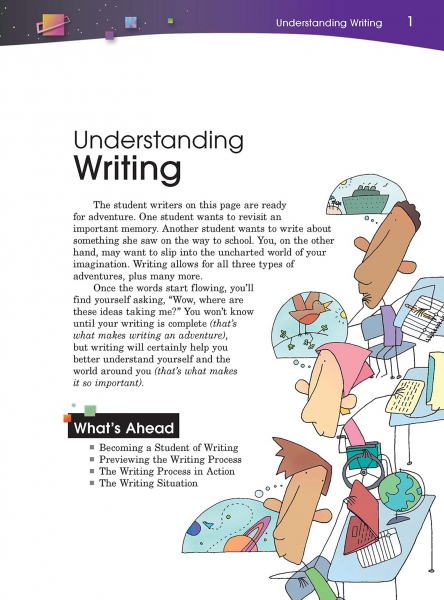Page 001 from

Start-Up Activity
Have students think of three of their favorite pieces of their own writing. Then have them write a sentence for each one: In social studies, I wrote a report about. . . . Next, read aloud the introductory text for this chapter. Follow up by having students identify each of the pieces they listed as either revisiting a memory, describing someone or something, creating an imaginary world (story, poem), or sharing information. Discuss how their writing could be considered a type of adventure.
Think About It
“Writing for me is a voyage, an odyssey, a discovery, because I'm never certain of precisely what I will find.”
—Gabriel Fielding

Start-Up Activity
Have students think of three of their favorite pieces of their own writing. Then have them write a sentence for each one: In social studies, I wrote a report about. . . . Next, read aloud the introductory text for this chapter. Follow up by having students identify each of the pieces they listed as either revisiting a memory, describing someone or something, creating an imaginary world (story, poem), or sharing information. Discuss how their writing could be considered a type of adventure.
Think About It
“Writing for me is a voyage, an odyssey, a discovery, because I'm never certain of precisely what I will find.”
—Gabriel Fielding

